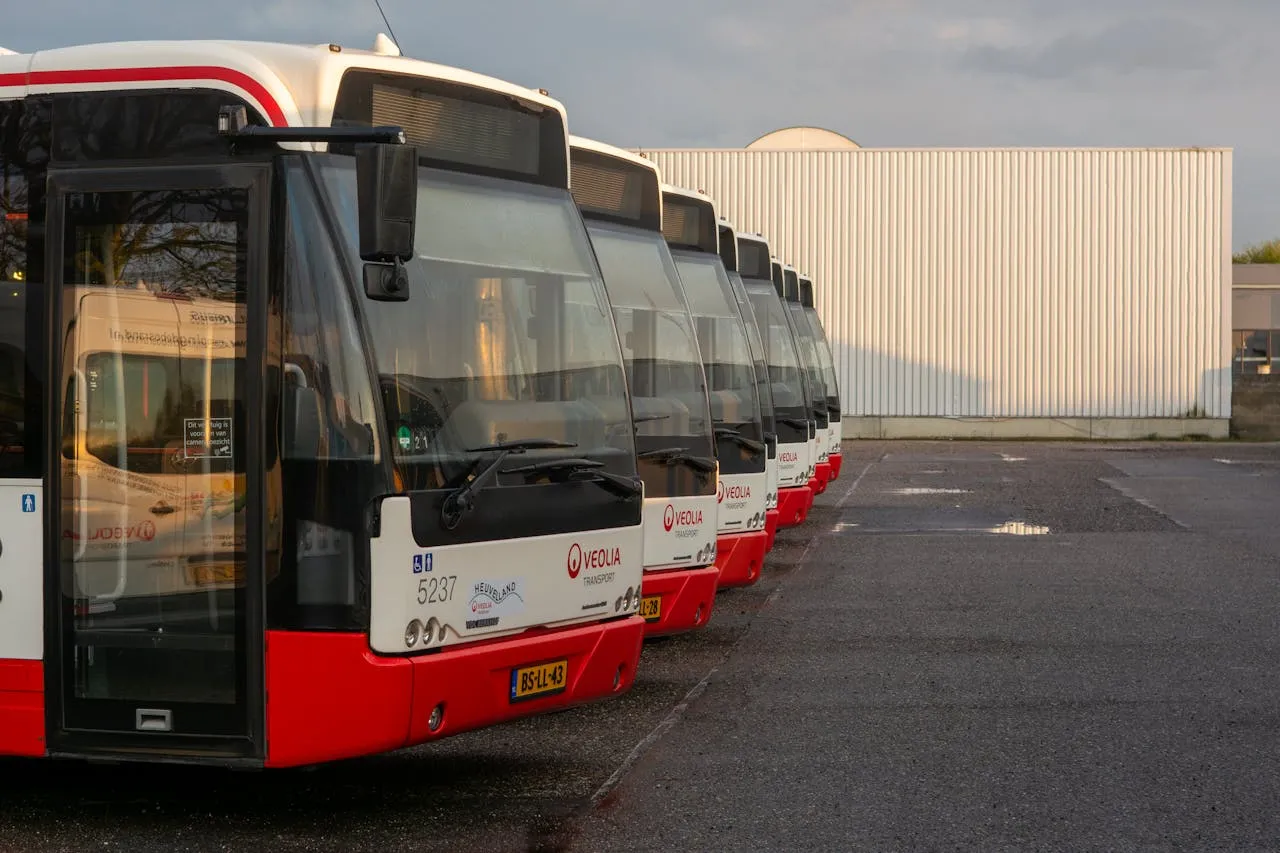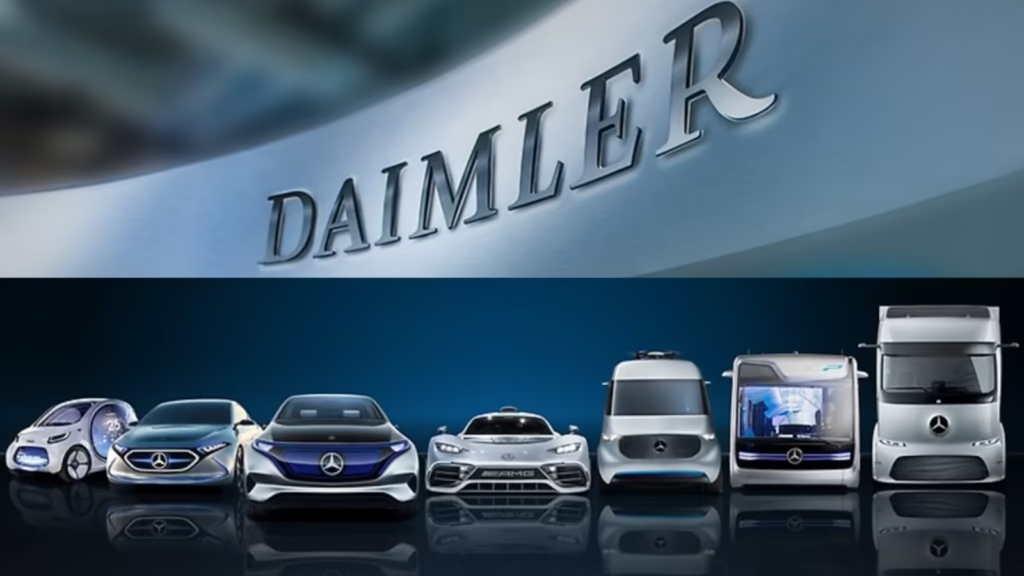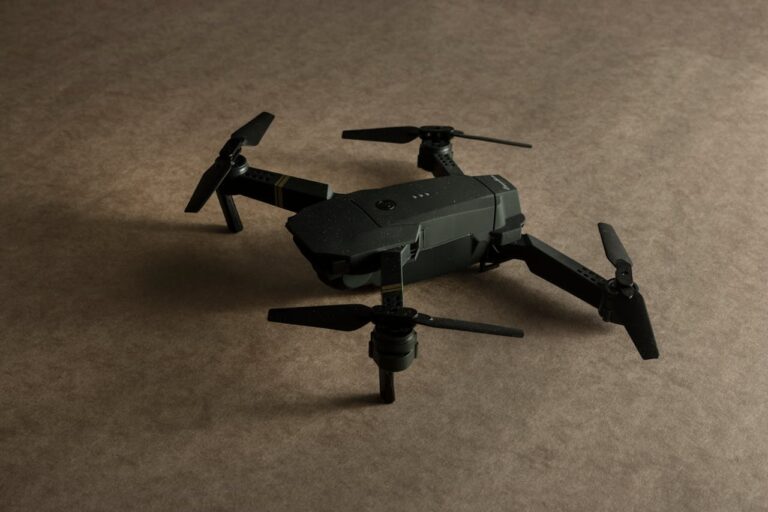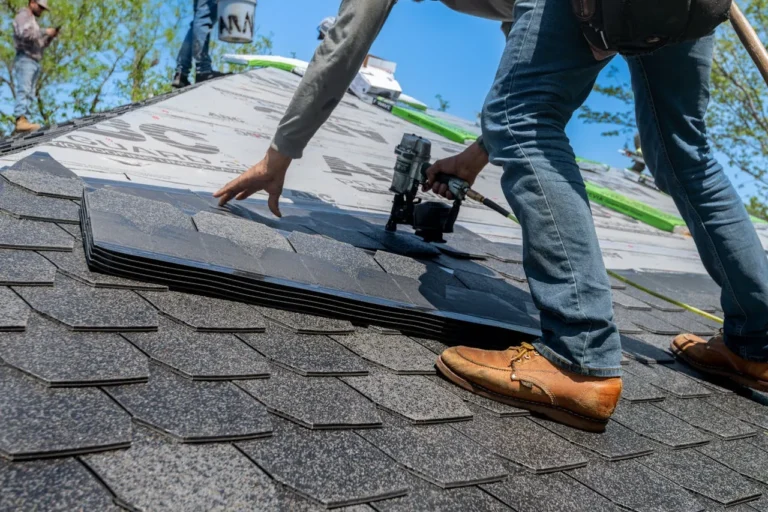
Daimler Buses Sets Ambitious Growth Plans with E-Services in the E-Mobility Sector
Daimler Buses, a global leader in the bus and coach manufacturing sector, is advancing its growth strategy in the rapidly evolving world of e-mobility, with a particular focus on services that go beyond the electric vehicles themselves and the infrastructure that supports them. The company is expanding its offerings by introducing a new range of services aimed at extending the useful life of electrically powered buses. This initiative underscores Daimler Buses’ commitment to providing not only high-quality electric buses but also comprehensive after-sales services that ensure their long-term sustainability and profitability.
One of the cornerstone services being rolled out is the remanufacturing of electric bus batteries. These remanufactured batteries promise to significantly extend the operating life of e-buses, addressing the natural wear and tear that batteries experience over time. Additionally, Daimler Buses is set to introduce a new, cutting-edge battery replacement option in 2026, featuring a next-generation battery with enhanced range capabilities. The goal is clear: to ensure that electric buses, like their diesel counterparts, can operate effectively over an extended period, offering long-term value to customers.
This push into e-services is part of a broader initiative, which Daimler Buses refers to as its “e-service offensive.” The initiative aims to support the entire lifecycle of e-buses, from purchase through to operation and eventual replacement, making these vehicles not only sustainable but also economically viable for customers. This holistic approach to e-mobility is positioning Daimler Buses as a pioneer in the industry, setting the stage for continued leadership in the e-bus market.
A Focus on the Mercedes-Benz eCitaro: Pioneering the Future of E-Mobility
Daimler Buses is initially rolling out its new e-services for the Mercedes-Benz eCitaro, an electric city bus that has been in series production since 2018. The eCitaro currently uses third-generation NMC3 (Nickel Manganese Cobalt) batteries, with plans for an even more advanced battery generation (NMC4) set for introduction in 2026. These battery upgrades are part of Daimler Buses’ strategy to provide customers with the most up-to-date, reliable technology for electric buses.

The new NMC4 battery will offer superior energy density, allowing for greater ranges while ensuring a longer service life. This enhanced technology will significantly improve the performance of the eCitaro, further cementing its place as a reliable and sustainable mode of urban transport.
The Mercedes-Benz eIntouro, an electric inter-city bus, is also poised to benefit from these innovations. Although it is currently in the prototype phase, with a near-series model presented at the end of 2024, the eIntouro will share much of the same battery technology as the eCitaro, utilizing LFP (lithium iron phosphate) batteries, which are known for their durability and long service life. The eIntouro is expected to hit the market in 2026, marking another milestone in Daimler Buses’ transition to fully electric transportation solutions.
Daimler Buses’ Vision for Long-Term E-Bus Sustainability
One of the critical challenges in the electric vehicle sector is battery degradation. Over time, batteries lose their capacity, which can affect the range and performance of electric buses. However, Daimler Buses has developed a solution to this issue with its remanufacturing and battery replacement program. The remanufacturing process involves taking first-generation NMC1 batteries and refurbishing them to significantly enhance their capacity, effectively extending the bus’s operational life.
This remanufacturing service will soon be extended to include NMC2 and NMC3 battery generations, ensuring that even older buses can benefit from the latest in battery technology. The company will also offer complete battery replacements, allowing customers to upgrade their buses with the most advanced NMC4 batteries. These new batteries will not only improve the range and performance of e-buses but also make the vehicles more cost-effective to operate over time.
A key feature of the NMC4 battery technology is its ability to deliver higher total capacity using fewer batteries. Depending on the bus configuration, this could lead to significant savings for customers while improving the overall environmental impact of the buses. In addition to remanufacturing and replacement, Daimler Buses will offer used e-buses with high battery capacity or the latest battery technology through its “BusStore” program, providing customers with an alternative option for acquiring electric buses.
Digital Tools for Battery Monitoring and Maintenance
To further ensure the longevity of e-bus batteries, Daimler Buses is offering a digital service portfolio that allows fleet operators to monitor the status of their batteries in real-time. This service includes software tools that track critical metrics such as state of charge, temperatures, and downtime, providing fleet operators with actionable insights and recommendations to maximize the lifespan of their batteries. By proactively addressing issues like overheating or undercharging, these tools help prevent unnecessary wear and tear on the batteries, ensuring their optimal performance.
Long-Term Warranties and Flexible Repair Options
Daimler Buses is committed to offering its customers peace of mind through long-term warranties. Starting in 2026, the company will provide warranties of up to twelve years on the new NMC4 battery generation. This extended warranty period is designed to provide customers with economic security over the long life of their buses, ensuring that their investment in electric mobility remains protected.
The modular design of Daimler Buses’ battery systems also facilitates easy repairs, minimizing downtime and reducing costs for customers. This modular approach ensures that battery maintenance is both straightforward and efficient, making it easier for operators to keep their fleets running smoothly.
Europe’s Largest E-Service Network
Daimler Buses has established one of the largest e-service networks in Europe, with over 100 service locations across the continent. These service centers are equipped with the specialized tools and facilities needed to handle the high-voltage systems and complex components of electric buses. Technicians at these locations receive specialized training to ensure that they can work safely and efficiently on electric vehicles.
The service network offers customers tailored solutions based on their individual needs, providing fast and reliable access to replacement parts and expert maintenance. This extensive network is a key part of Daimler Buses’ commitment to offering comprehensive after-sales support for electric buses, helping customers keep their fleets in top condition for as long as possible.
Sustainable Battery Lifecycle Management
Once an electric bus battery has reached the end of its useful life in the vehicle, Daimler Buses offers “repurpose” solutions. These repurposed batteries can be used in energy storage applications, such as balancing peak demand on the electrical grid or as intermediary storage in renewable energy plants like solar or wind farms. This repurposing not only helps reduce waste but also contributes to a more sustainable energy system.
Once the batteries are no longer viable for repurposing, Daimler Buses partners with experts to offer recycling solutions aimed at recovering valuable raw materials, further minimizing environmental impact. This holistic approach to battery lifecycle management supports the company’s goal of achieving a closed-loop product lifecycle and advancing sustainable practices in the e-mobility sector.
Advancing Battery and Hydrogen Technologies
Daimler Buses continues to invest in the development of advanced battery and hydrogen technologies to meet the diverse needs of its customers. For city buses, the company relies on lithium-nickel-manganese-cobalt (NMC) batteries, with the new NMC4 generation set to offer even greater energy density and longer lifespans. For inter-city buses like the eIntouro, Daimler Buses uses LFP batteries, which are known for their exceptional longevity and excellent performance in high-demand applications.
Through its continued research and collaboration with partners, Daimler Buses is pushing the boundaries of what is possible in the e-mobility space, ensuring that its vehicles remain at the forefront of the transition to sustainable transportation.
A Clear E-Roadmap for the Future
Daimler Buses’ e-roadmap reflects its commitment to electrification across all bus segments. The company is poised to expand its electric vehicle offerings to include not only city buses but also intercity coaches and long-distance transport options by the end of the decade. By 2030, Daimler Buses plans to offer fully CO2-free models for all local applications in Europe and Latin America, with a complete transition to CO2-free vehicles in Europe by 2039.
In addition to producing electric buses, Daimler Buses is also focusing on providing the necessary infrastructure and expertise to help customers make the switch to electric mobility. Through its new subsidiary, Daimler Buses Solutions GmbH, the company is helping to design and implement e-mobility infrastructure, including charging solutions and hydrogen stations, further supporting the widespread adoption of electric buses.
Strong Financial Performance
Daimler Buses continues to demonstrate its leadership in the global bus market, with a solid performance in 2024. The company sold approximately 26,600 units worldwide, marking a 2% increase from the previous year. Revenue grew by 15% to over €5.2 billion, reflecting strong demand for electric buses and continued investment in innovation. With an adjusted return on sales of 8.3%, Daimler Buses is well-positioned to capitalize on the growing demand for sustainable public transportation solutions.
Daimler Buses is not just leading the charge in electric vehicle manufacturing; it is also paving the way for a sustainable, long-term future for e-mobility. With its comprehensive suite of e-services, robust infrastructure, and innovative battery solutions, the company is ensuring that its electric buses will remain operational, efficient, and environmentally friendly for years to come. As the demand for sustainable public transportation continues to grow, Daimler Buses is well on its way to shaping the future of the industry, one electric bus at a time.




